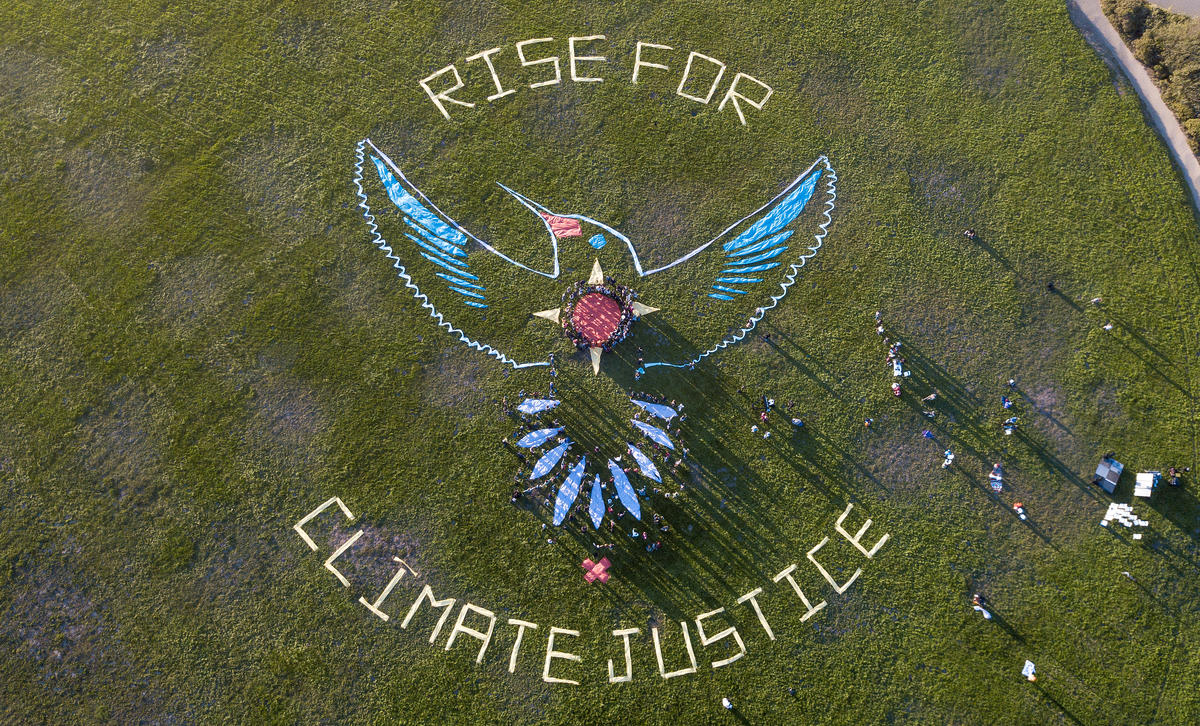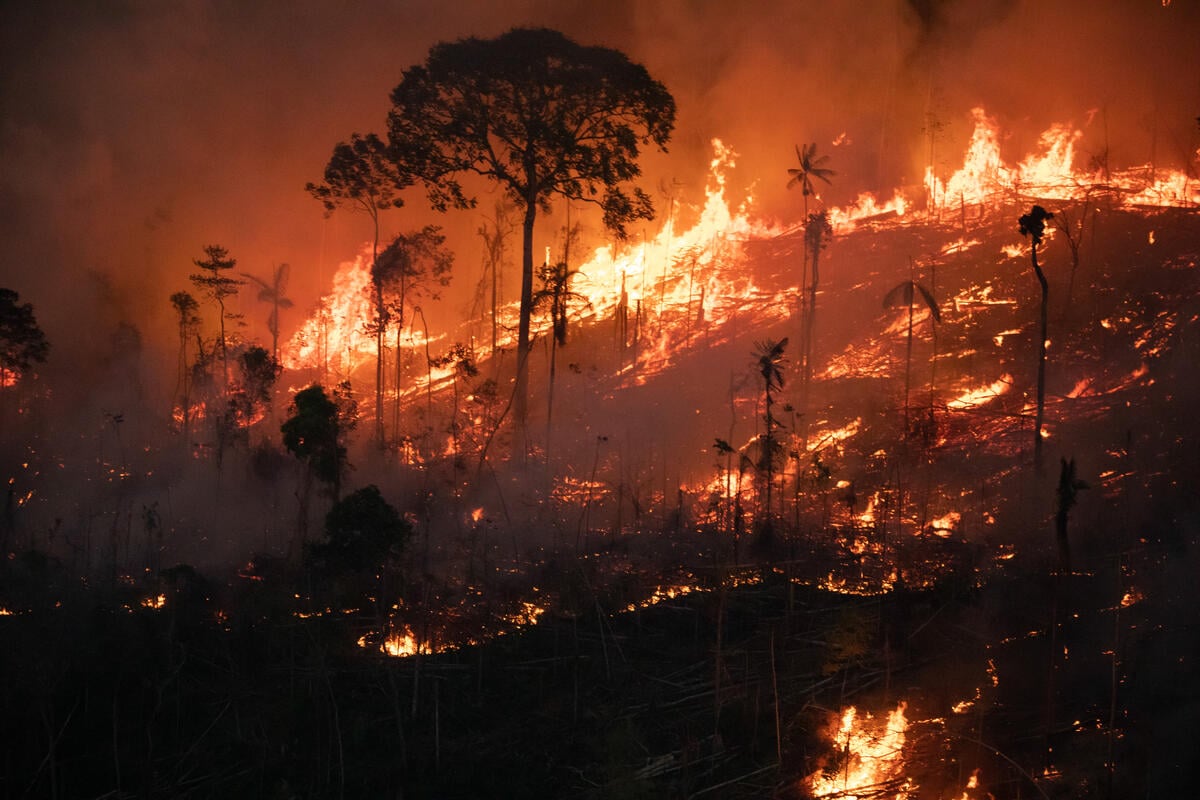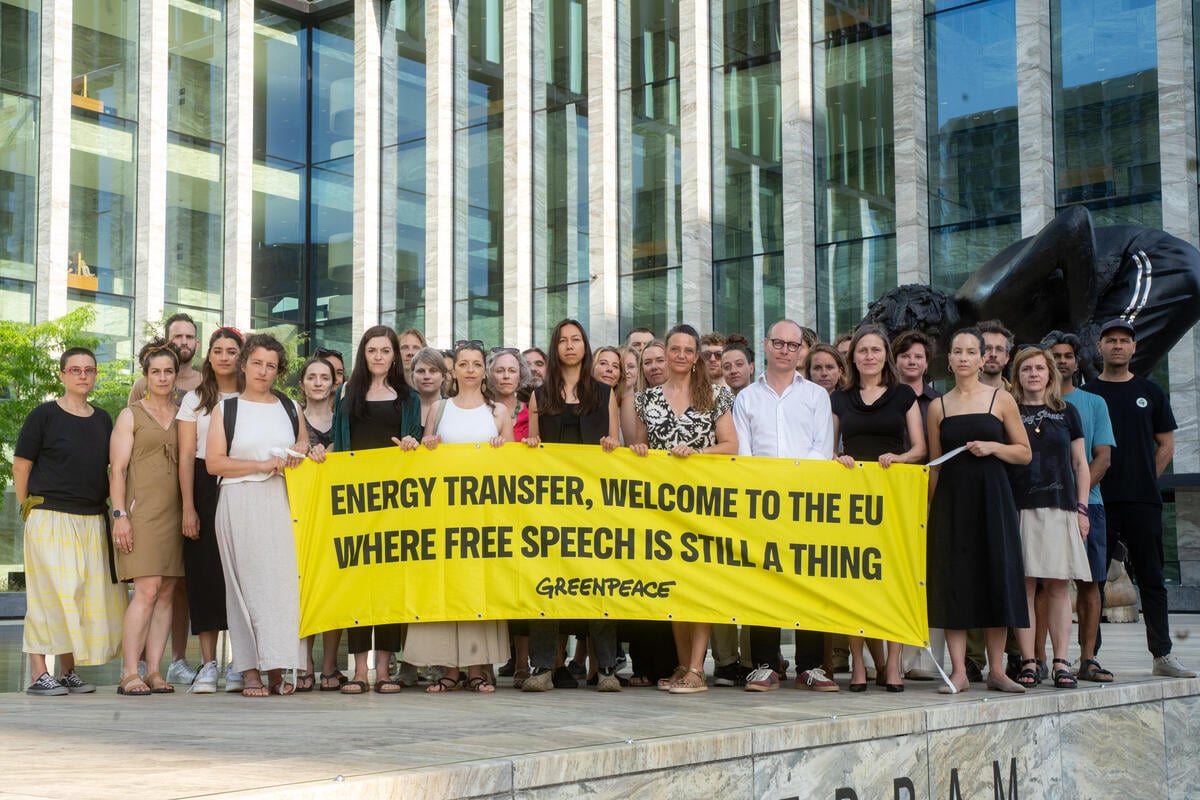In recent days, the City of Whistler’s letter to oil companies caused a furor in the Canadian oil patch, on Bay Street, and (inevitably) in the media.
In the mainstream, Whistler’s action has been widely framed as Whistler getting in the middle of a fight between environmentalists and oil companies — playing in a pool in which it doesn’t belong and trying to bill just one oil company for the costs of climate change, even as the ski town’s own emissions rise due to its fossil fuels guzzling.
Of course, that’s not the real story.

Many important points about the data tying fossil fuels companies to climate change have gone unsaid and uncited. Meanwhile, industry claims about misinformation have gone unchallenged.
So here’s what people have got wrong:
This wasn’t an attack against one company
First, the West Coast Environmental Law campaign informing Whistler’s letter targets more than a dozen companies (largely international). Whistler sent letters to many companies, not just Canada’s CNRL.
Here’s why: just 100 fossil fuel producers (private companies and state-owned entities) have been responsible for over 70 per cent of global anthropogenic (human-caused) greenhouse gas emissions since 1988. That list contains big multinational and state-owned oil companies like Saudi Aramco (4.5% of total emissions since 1988), ExxonMobil (3.5%), Shell (1.7%) and BP (1.5%). It also includes four Canadian oil and gas companies: CNRL, Suncor, Husky and Encana.
This isn’t new stuff: investigative journalism from the L.A. Times and Inside Climate News as well as academic research from Harvard has shown that oil companies have known for decades that burning fossil fuels contributes to climate change. Yet instead of sharing that information, they chose to engage in a public relations campaign to delay government action that would reduce demand for their product.
That is why oil companies are coming under scrutiny and investigation for what we could call “climate crimes” all over the world, from the Philippines, to the USA, to the small-island state of Vanuatu. As the risks facing the oil industry mount, it’s important that Canada safeguard jobs by expanding clean energy opportunities and transitioning workers into them, rather than capitulate to the demands of an industry railing against change.
Don’t let the oil lobby get you down
Second, it’s time to bust the myth of fossil-free purity.
We’ve all almost certainly used oil and gas in one way or another. This doesn’t mean we should shut our mouths and wallow in our hypocrisy. The gap between where we are and where we need to be is evidence of the old world needing to shift to the new. And it means we all have a role to play in working towards solutions.
Just because we have work to do in greening our own backyards doesn’t mean we stop working on system change. In fact, transforming our fossil-fuel based system is essential to getting the availability and access to green energy we need at home. Don’t let the oil industry shame or fool you into thinking otherwise.
Greenies versus Big Oil? I don’t think so
Third, this isn’t a fight between environmentalists and oil companies.
Whistler’s letter wasn’t an invoice to CNRL. It was the start of a dialogue about why oil companies should pay their fair share of the costs of climate change, instead of doing the equivalent of a “dine and dash” to lower- and middle-class folks left to bear the burden. Wildfires, heatwaves, sea ice loss and other extreme weather events are just a few of the climate symptoms hurting people and businesses in Canada.
Climate change affects us all. Let’s not allow right-wingers and the oil lobby to keep climate change polarised nor use it as a tool to divide us.
So, what’s the solution?
Canadian oil companies received a promise of more than a billion in federal funding this week and are set to enjoy exemptions from crucial carbon pricing. So, calling on them directly to pay their fair share of the costs of climate change — not all, but a fair share — is not only reasonable, it’s essential.
Yet I often hear that Canadians believe that the costs of climate change should be shared, divvied up amongst the world’s different countries — or even more nebulously, “everyone”.
In practical terms, asking the world’s oil, gas, and other highly polluting companies to pay up is part of what sharing the costs looks like. In fact, most Canadians support the idea of oil companies paying their fair share. It even came to light yesterday that Vancouver’s City Council is investigating the issue of cities seeking costs from the fossil fuel industry.
So, if oil companies refuse to take the initiative in making amends for the harm caused by their products, a polite letter urging them to begin doing so is hardly outrageous. Cities like New York, Oakland and San Francisco, which are also grappling with the costs of climate change, have even had to file lawsuits against Big Oil in hopes of getting them to pay their fair share.
Just like tobacco companies that hid the health effects of cigarettes from consumers decades ago, some oil companies also appear to have allegedly lied about what they knew about fossil fuels and climate change (to the public and their own shareholders). Expect investigations that turned up findings like this to ramp up. And if they find more evidence of companies downplaying the risk of climate change, the case for climate accountability lawsuits could be strengthened.




